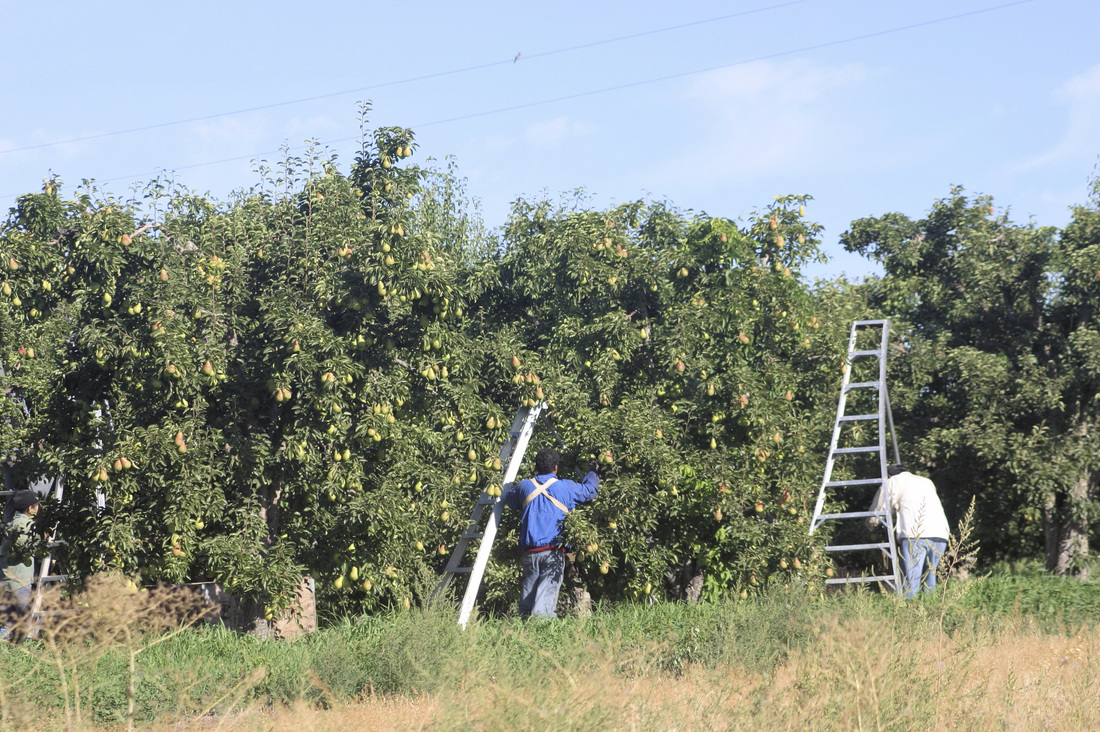|
NCFH had the opportunity to talk with Lupe Gonzalo, a long time member of the Coalition for Immokalee Workers (CIW). The CIW is a “worker-based human rights organization internationally recognized for its achievements in the fields of social responsibility, human trafficking, and gender-based violence at work.” The coalition has been around for over two decades and in 2011 launched its highly successful Fair Food Program. The Fair Food Program (FFP) is a unique partnership of growers, farmworkers, retail food companies and consumers. Their mission is to create a safe and fair working environment for the often-exploited farmworker population. Lupe Gonzalo explained how she and other members of the coalition have been working to eradicate wage theft and sexual harassment in the fields, as well as ensuring all workers have the right to sanitary restrooms, breaks, and options to work in inclement weather conditions. The Fair Food Program is unique, Lupe explains, “because workers create the code of conduct.” The workers know what’s best for them and what they are lacking, so a worker-driven code of conduct ensures the workers voices are being heard as, well as met. Lupe goes on to say, “Oftentimes in the fields there are no restrooms nearby, so sometimes you don’t drink enough water because you don’t want to go to the bathroom in the nearby plants.” The Fair Food Program and the CIW want consumers to know that the health and safety of all parties involved are at risk when workers are not provided basic sanitary needs; from grower to worker to consumer. According to the program’s 2014 Annual Report, “health and safety issues generated 20% of valid complaints. Many of these complaints were made by workers to enforce their rights to take reasonable breaks and days off to rest, as well as to stop work (without compensation) when they believed that their health or safety was endangered.” The report also details that 25% of participating growers have now established Health & Safety committees on their farms. These committees are responsible for complaint mechanisms, resolutions, and educational trainings. When asked how the FFP enforces the health and safety standards, Lupe explained that at the beginning of each growing season the CIW goes to the participating growers and educates the workers on their rights. They teach them that they are allowed to have resting breaks, access to drinking water and bathrooms, as well as an option to work if the weather is too dangerous, like during a thunderstorm. And, most importantly, that reporting abuse of these rights is allowed without fear of retaliation. One of the biggest issues that affect farmworker health and safety is application and management of pesticides. The FFP worker-written code of conduct states that “Participating Growers will provide a safe and healthy working environment for their Qualifying Workers and, working with the Coalition of Immokalee Workers (CIW), develop and implement a Worker Health and Safety process through which Qualifying Workers are able to offer the Participating Grower their input and perspective on health and safety issues in a regular and structured manner.” The Coalition of Immokalee Workers has a long history of advocating for workers rights in the fields. To find out more about the FFP and CIW’s campaign visit their website Comments are closed.
|
The National Center for Farmworker HealthImproving health care access for one of America's most vulnerable populations Archives
July 2024
Categories
All
|


 RSS Feed
RSS Feed